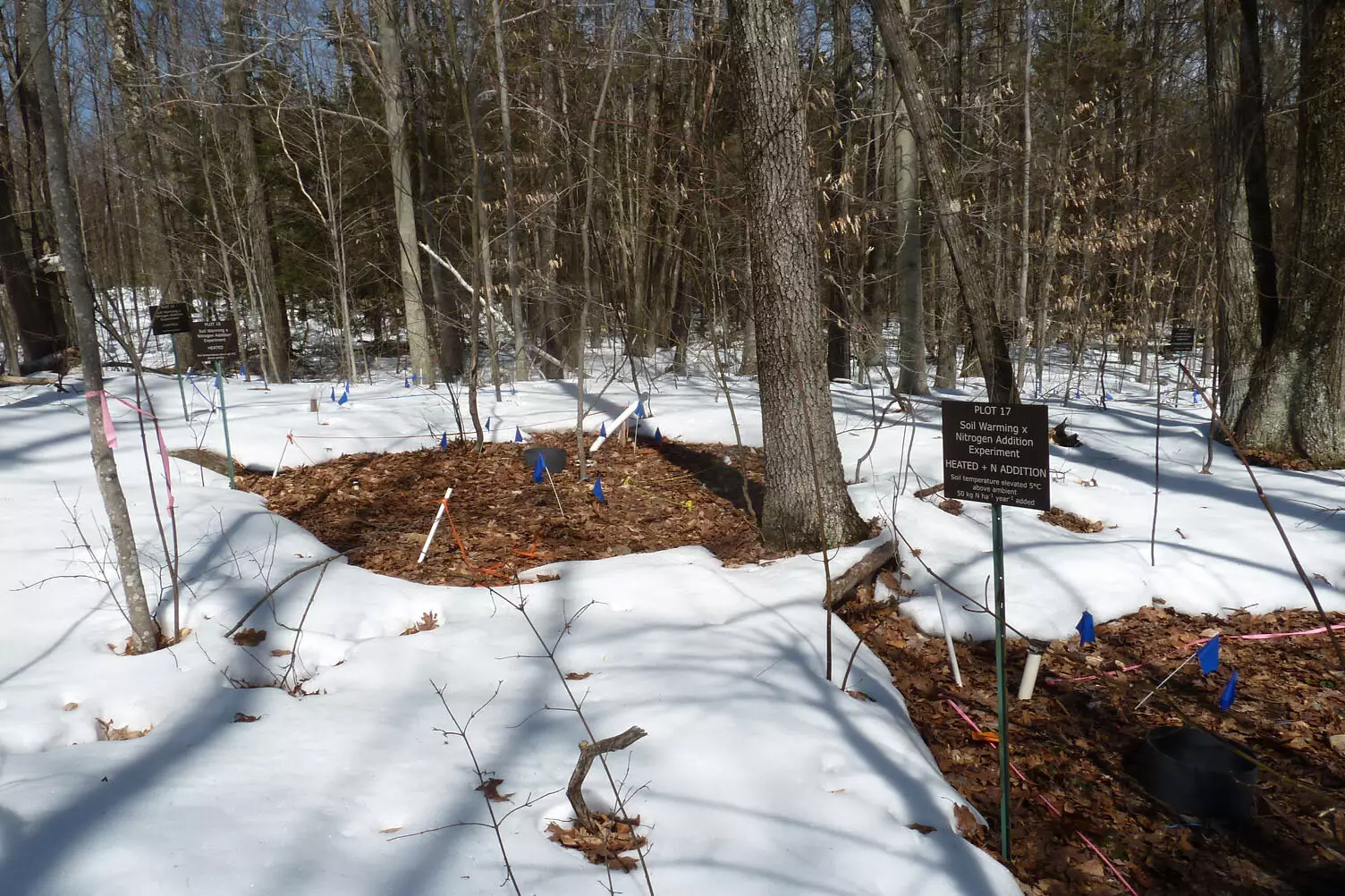The tranquility of New England’s forests belies the complex environmental challenges they face today. Recent advances in scientific inquiry reveal intertwining dynamics between climate change and anthropogenic nitrogen deposition, both of which are reshaping these vital ecosystems. The University of New Hampshire has conducted a groundbreaking study unraveling the effects of these dual pressures on soil carbon storage, providing a formidable counterpoint to traditional understandings. This article will explore the significance of these findings and their implications for forest management and conservation strategies.
For years, researchers have scrutinized the impacts of rising temperatures and heightened nitrogen levels on the environment, typically in isolation. The new research led by Melissa Knorr and Serita Frey breaks from this conventional approach. It highlights an essential development in ecological science: that interactions among multiple environmental stressors can produce varied and unexpected outcomes. By focusing on both the continuous warming of soil and the introduction of nitrogen through fertilization, researchers were able to ascertain that soil carbon levels remained stable, challenging previous findings that predicted significant carbon loss in warming soils.
The researchers relied on an extensive, well-established experimental framework located at the Harvard Forest Long-Term Ecological Research site in Massachusetts. Over sixteen years, they meticulously monitored the ecological responses of the forest to their experimental treatments, which included a temperature increase of five degrees Celsius and a steady nitrogen fertilization rate. The depth of this investigation lends credibility to their findings, demonstrating that an adaptable and robust ecological response can occur even under stresses previously marked as detrimental. The study’s thoroughness cannot be overstated—it presents a finely-tuned lens into the multifaceted nature of carbon dynamics under climate-related pressures.
At the heart of the study’s revelations is the role of plants, particularly their root systems, in mitigating carbon loss. Contrary to the expectation that microbial activity would lead to an unchecked carbon release, the research indicates that greater plant growth, facilitated by increased nitrogen and warmer temperatures, results in enhanced root turnover and carbon inputs. The natural cycle of root growth and decay enriches the soil with organic matter, promoting stability in carbon levels and counteracting potential losses. This observation illustrates a vital and often overlooked aspect of forest ecology—how plant-soil interactions serve as critical mediators in responses to climate stressors.
These findings carry significant implications for forest conservation practices, particularly in the context of increasing carbon dioxide concentrations in the atmosphere. The ability of forests to act as carbon sinks is paramount in combating climate change, and understanding how to strengthen these systems through strategic interventions is crucial. By placing emphasis on the importance of rooting metrics and overall plant health, conservation efforts may better target practices that enhance the resilience of these ecosystems.
Moreover, the study indicates that while nitrogen deposition levels are declining in New England, they still pose a considerable challenge in terms of ecosystem health and biodiversity. Thus, researchers and policymakers should be cognizant of how nutrient enrichment can affect not only carbon storage but also the broader ecological balance, which includes plant health and water quality.
As scientist Melissa Knorr notes, this study provides a more comprehensive understanding of how ecological systems respond to combined stressors. Importantly, it diverges from the singular focus that has dominated previous research, inviting the scientific community to embrace more integrative approaches. The ongoing transformation of New England’s forests due to climate change and nitrogen deposition is complex, and the pathway toward effective management lies in recognizing and nurturing the relationships among all components within these ecosystems. This study is not just a triumph for those involved; it signals a new era in ecological research, one marked by an appreciation of complexity and interconnectedness that could, ultimately, lead to more effective conservation strategies in the face of accelerating climate change.


Leave a Reply